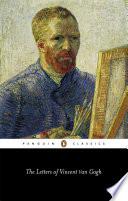1880s, 1884, Letter to Theo (Nuenen, Oct. 1884)
Context: I tell you, if one wants to be active, one must not be afraid of going wrong, one must not be afraid of making mistakes now and then. Many people think that they will become good just by doing no harm - but that's a lie, and you yourself used to call it that. That way lies stagnation, mediocrity.
Just slap anything on when you see a blank canvas staring you in the face like some imbecile. You don't know how paralyzing that is, that stare of a blank canvas is, which says to the painter, You can't do a thing. The canvas has an idiotic stare and mesmerises some painters so much that they turn into idiots themselves. Many painters are afraid in front of the blank canvas, but the blank canvas is afraid of the real, passionate painter who dares and who has broken the spell of 'you can't' once and for all.
Life itself, too, is forever turning an infinitely vacant, dispiriting blank side towards man on which nothing appears, any more than it does on a blank canvas. But no matter how vacant and vain, how dead life may appear to be, the man of faith, of energy, of warmth, who knows something, will not be put off so easily. He wades in and does something and stays with it, in short, he violates, "defiles" - they say. Let them talk, those cold theologians.


